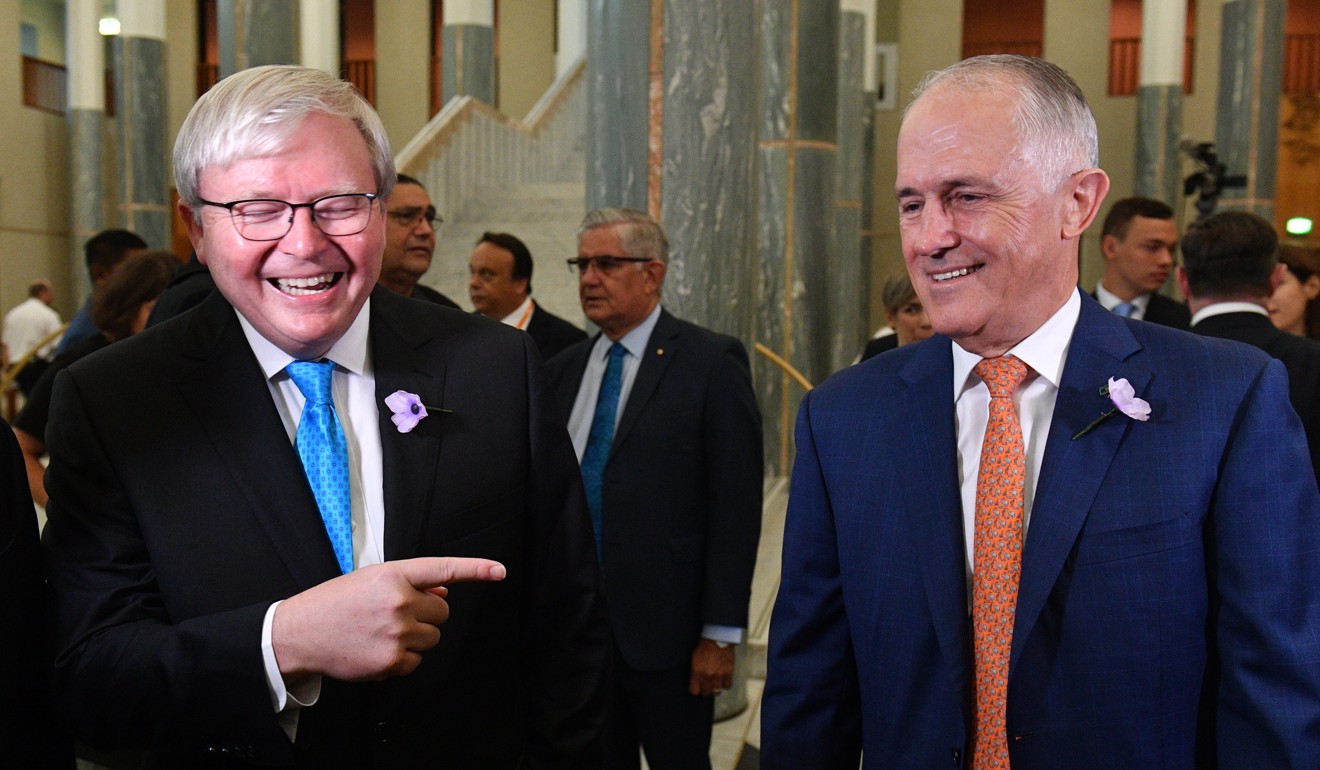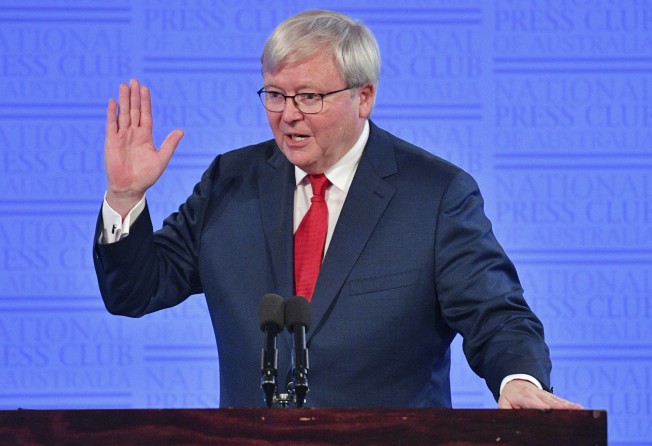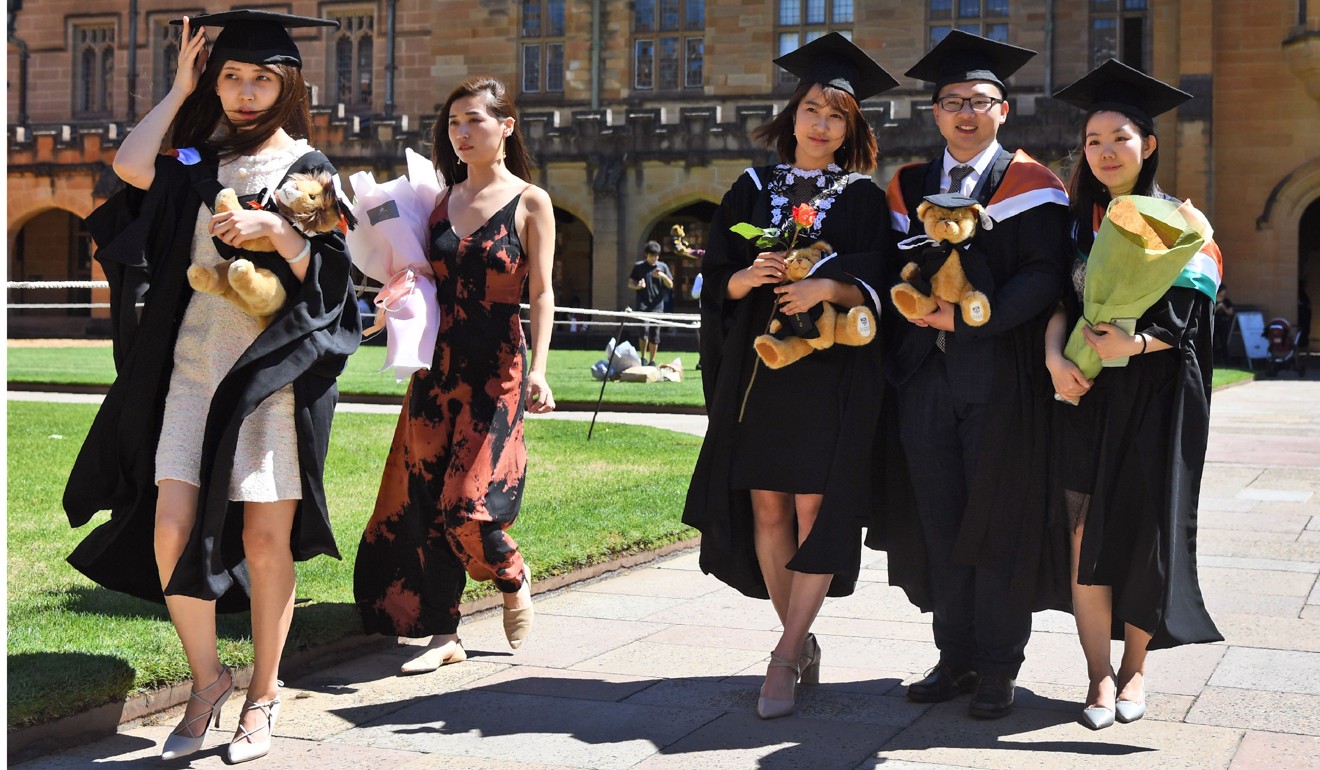
Former PM Kevin Rudd accuses Turnbull’s government of ‘anti-Chinese jihad’

Kevin Rudd has accused the Turnbull government of “neo-McCarthyism” over its foreign interference package, which aims to crack down on China’s influence in Australia.
Speaking at the National Press Club on Monday, the former Labor prime minister said he disagreed with China on human rights questions but Malcolm Turnbull had caused patriotic Chinese-Australians “unnecessary anxiety”.
Rudd’s comments follow Labor’s increasing hostility to the government’s proposed register of lobbyists for foreign interests, which has been subject to a widespread backlash due to fears that even benign contributions to public debate will be included.
Rudd said his government took the role of Chinese organisations in Australian society seriously and was sometimes “in conflict with the interests of Beijing” over Tibet, the South China Sea and Chinese investment in Australian resource firms.
“But we did not see that as, therefore, the basis upon which to launch some anti-Chinese jihad of the type I have seen in the current political discourse by the government,” he said.

In December, Iranian-Australian Sam Dastyari resigned from the Senate over his connections to China and the Turnbull government introduced bills to ban foreign political donations and establish the foreign influence register.
Speak to good patriotic Chinese-Australians about how they feel being fingered by Mr Turnbull
Rudd said Turnbull had responded to the controversy around Dastyari and “as a result of that, after a period of time, Mr Turnbull found himself almost unable to control himself in terms of pursuing a domestic political agenda”.
Rudd called for a more balanced China strategy, “not one which begins to wave the flag of neo-McCarthyism in this country against the Chinese community that live here”.
“Speak to good patriotic Chinese-Australians about how they feel being fingered by Mr Turnbull generically, as a result of some of comments made, and we create an unnecessary feeling of anxiety.”
Rudd agreed that foreign donations laws should be tightened but blamed the Liberals for blocking an earlier bill to ban them.
He said that engaging with China, a one-party state run by the Communist Party, was a challenge that required balance with Australia’s liberal democratic values.
“I think the Chinese one-party state, right across Asia and across the world, consistent with the behaviour of other states, seeks to maximise its interests and influence,” he said.
Rudd suggested the solution was to enforce existing laws on foreign investment and laws to prevent “any intrusion on Australian civil liberties”.
Rudd said universities should enforce their rules but noted that Chinese student bodies in Oxford that were not endorsed by the embassy coexisted with those that were.
Echoing comments from the former prime minister Paul Keating and Labor’s foreign affairs spokeswoman, Penny Wong, Rudd suggested Australia must not regard the United States alliance as “automatically mandating compliance with every single element of the US national security policy and foreign policy, particularly as articulated under the Trump administration”.

The foreign influence register requires disclosure of people who lobby “on behalf of foreign principals”, including foreign governments, businesses, political organisations and any individual who is not a resident or citizen of Australia.
The breadth of the bill has been criticised by the Law Council, Australian Lawyers for Human Rights, Universities Australia and the Group of Eight universities.
In his personal capacity, the Australian Strategic Policy Institute executive director, Peter Jennings, has said he has “absolutely no doubt” about the need for the bill.
On Thursday the shadow attorney general, Mark Dreyfus, warned that the register would increase red tape for the charity sector because of its “extraordinarily expansive definitions” of lobbying and foreign principals.
He suggested the bill was the product of “sloppy drafting” because, if the effect of requiring civil society groups to register was intentional, it was “truly shameful”.
“We in the Labor party think that giving in to an assault on civil society is an abdication of our responsibility to protect and nurture the crucial role Australian civil society has in creating a fair and equal nation.”